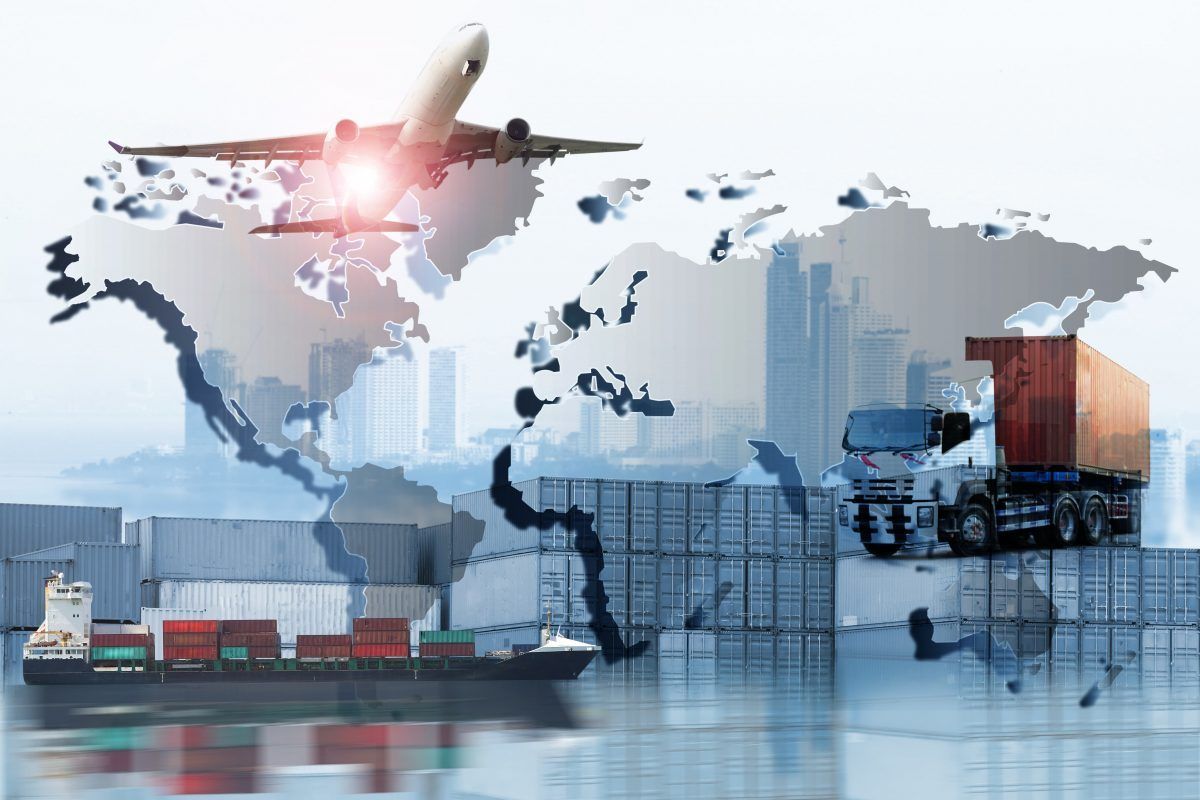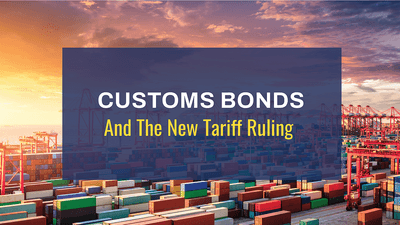April 02, 2018 | Industry Insights
Unfair Trade Practices & The Customs Bond Market

By: Matthew L. Zehner – Vice President, Surety Information & Analysis
If you are wondering why portions of what we do for a living are being discussed on TV news and on the front page of newspapers, continue reading for a high-level explanation of what is going on.
In addition to the HTSUS tariff rates on imported goods and other statutory taxes and fees, there are a variety of laws available to combat unfair trade practices. The U.S. government is blowing the dust off a few of these seldom-used laws and putting them to use.
Unfair Trade Practices: Common and Familiar Protections
Antidumping and Countervailing Duties
The laws with which the trade and customs brokerage communities are most familiar allow for collecting antidumping and countervailing duties (ADD and CVD). Where a U.S. industry is injured, or threatened with injury, AND imported goods are sold below normal value or are subsidized by the exporting country, the U.S. can impose additional duties to counteract the low pricing and subsidies.
Section 337
Another familiar law involves the exclusion of goods that violate intellectual property rights (patents, trademarks, copyrights, etc.). When a rights holder is successful, CBP denies entry of infringing goods. During the investigation process, just prior to the actual exclusion occurring, goods may continue to enter the U.S. if an “ITC Exclusion Order bond” (CBP Activity Code 12) is posted. Most Section 337 investigations result in companies entering into licensing agreements for the use/entry of the protected property.
Unfair Trade Practices: “New” Protections
Infrequently invoked statutory measures are appearing, and they may be unfamiliar to the trade. Some of these are brought about by U.S. industries initiating actions under “safeguard” measures (washing machines, solar products), and some of these are initiated by the U.S. government (against imports of certain commodities such as aluminum and steel and against certain countries such as China).
Safeguard Duties – Sections 201 – 204
Safeguard duties are imposed under Sections 201, 202, 203, and/or 204. In the most recent examples of washing machines and solar products, in addition to any existing tariffs, ADD, and CVD, high safeguard duties are also imposed but will decline to zero over 3-4 years. The purpose of this is to give the domestic industries some breathing room to counteract surging imports.
Section 232
Earlier this year, it was determined that global production of aluminum and steel pose threats to U.S. national security. Under Section 232, the President can impose measures to curtail or counteract imports of goods threatening or impairing national security. This is what is being done with the additional 25% tariff on certain steel and 10% tariff on certain aluminum that took effect March 23 and was expanded to more countries on June 1. These tariffs were increased August 13 to 50% for steel from Turkey. These decisions allow for carve-outs for countries, firms, or certain products when the right conditions are met. For example, due to quarterly quotas, tariff exemptions exist for steel and/or aluminum from Argentina, Australia, Brazil, and/or South Korea.
Another Section 232 determination regarding global production of automobile and automotive parts is pending and could be announced at any time.
Section 301
Another section of the laws, Section 301, covers a catch-all category of unfair trade practices: a denial of U.S. rights under trade agreements and other unjustifiable, unreasonable, or discriminatory acts by foreign countries. Here is where President Trump counteracts China’s unreasonable practices (forced technology transfers, local content rules, investment restrictions, etc.). China’s actions may not be illegal, but the unreasonable nature of these practices is prompting the use of this law with the goal of securing more balanced trade rules. These are announcements or actions related to Section 301 taken against China:
-
- On July 6, 25% duties on 818 8-digit HTSUS classifications covering about $34 billion of annual entered value.
- On August 23, 25% duties on 279 HTSUS classifications covering about $16 billion.
- On September 24, 10% duties on 5,745 HTSUS classifications covering about $200 billion, and increasing to 25% on January 1, 2019.
- Another $267 billion of additional imports could become subject to tariffs.
What Does It Mean for Importers and Customs Brokers?
The general theme of most of these measures is collecting higher duties at the time of entry of the goods. Because these larger duty amounts become part of the prior 12 months of importing history, importers may need to replace their import bonds with new bonds for higher amounts. A bond’s sufficiency status is continually measured by CBP on a rolling basis of that prior 12 months of activity. Recently, CBP issued insufficiency notices to over 2,000 bond principals. Larger bonds often require longer lead times to obtain underwriting approval, so quick action is important, and being proactive is essential.
CBP-required bond amounts are calculated on past activity, but could still be deficient for the future 12 months. Importers and customs brokers will want to review duty projections for the upcoming 12 months in conjunction with relevant new duties. Roanoke’s 5-steps to managing your continuous imports bonds can help parties stay ahead of the curve to avoid unpleasant surprises and frequent insufficiency actions imposed by CBP. CBP runs sufficiency calculations monthly, so they are always on top of this.
Should you need assistance, please contact your Roanoke Insurance Group Bond Service Team.
This information is intended to provide the reader with a high-level perspective. Every possible situation cannot be summarized; nuances and details can vary from person to person and matters should be thoroughly researched in order to plan for the specific impact of these events in each situation.
About the Author
Matt Zehner is Vice President, Surety Information & Analysis for Roanoke and has been involved in the international trade segment of the insurance field for over 25 years. Matt is involved with Roanoke’s Customs and OTI Bonds products which includes monitoring current events for changes in the legal and regulatory environment and working closely with federal agencies and industry trade associations concerning changes impacting the international trade industry and its surety products.













